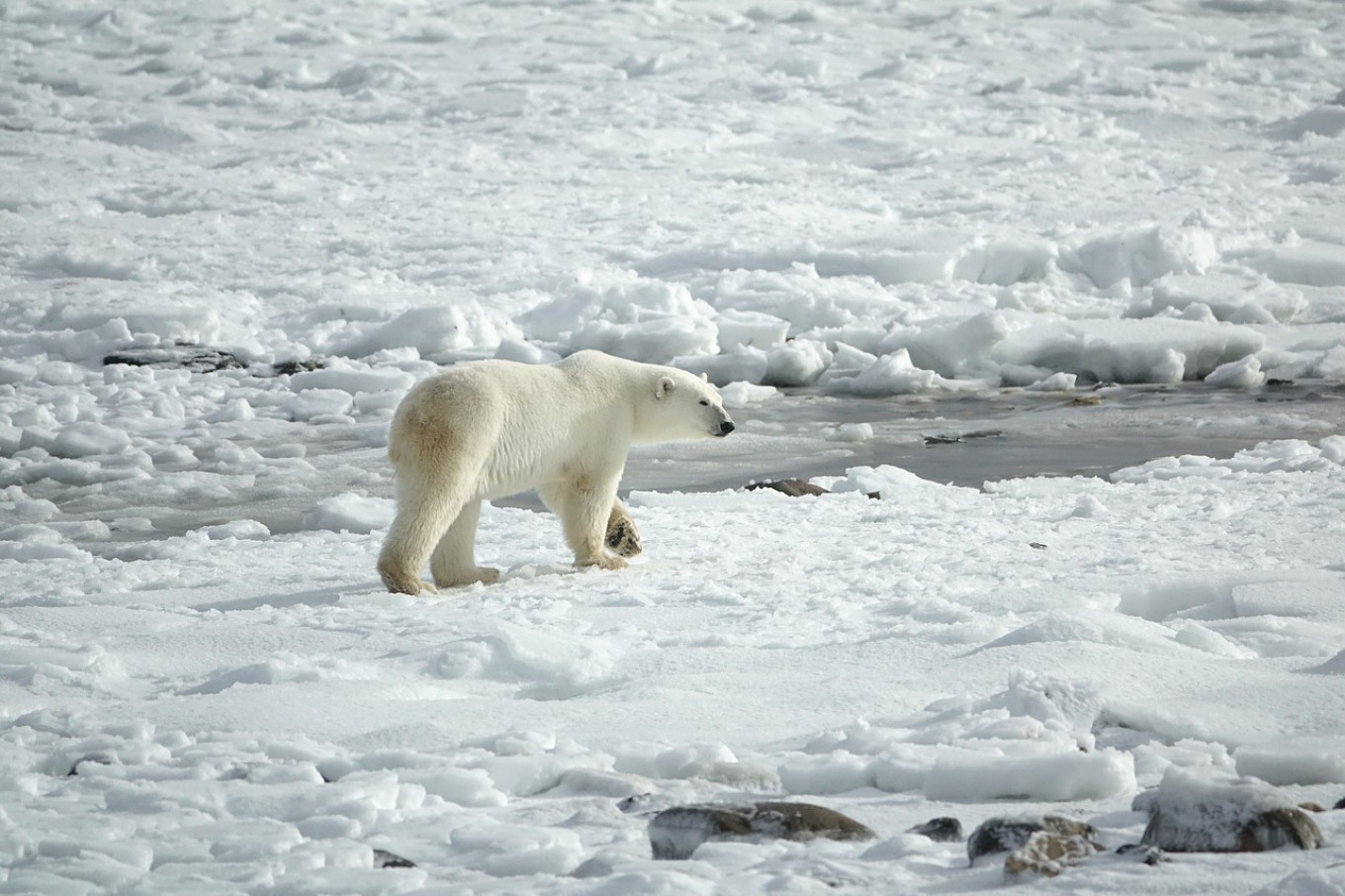
Polar bears in Russia’s Arctic are increasingly turning to cannibalism as growing human activity and development in the region shrinks their hunting grounds, scientists at the Russian Academy of Sciences said Wednesday.
While cannibalism is a recognized part of polar bears’ natural behavior, its frequency has climbed sharply in recent years, Ilya Mordvintsev, a senior researcher at the Academy’s Severtsov Institute of Ecology and Evolution, told Interfax.
According to Mordvintsev, increased development of the Yamal Peninsula and the Gulf of Ob by oil and gas companies have fueled the degradation of polar bear hunting grounds and disrupted the animals’ feeding habits. The region is a hotspot of development for major gas and oil producers like Gazprom and Novatek.
“The signals are coming not just from scientists, but also from the growing contingent of employees of oil and gas companies and the Defense Ministry,” he said.
Polar bear cannibalism most often happens when a malnourished male bear attacks a female and her cub, eating the cub, he said. The phenomena gained widespread attention when members of a 2017 National Geographic expedition captured it in a graphic video.
Rising temperatures in the Arctic and melting ice cover have also forced polar bears further south in search of food, making them more likely to come into contact with human settlements. Video showing polar bears wandering into cities in Siberia and rummaging through garbage in the Russian Arctic drew worldwide concern last year.
Russia’s government has said that the country is warming 2.5 times faster than the rest of the world.
